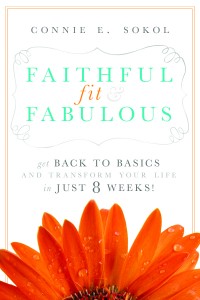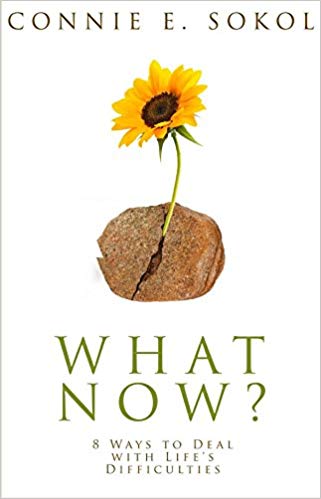[The following is an excerpt from Faithful, Fit, and Fabulous. Purchase links are below.]
 “1. Rest. When I experienced adrenal fatigue, I had been working out six days a week, forty-five to sixty minutes a session. Finally thrilled to be consistent, I now had to force myself not to exercise in order to heal (the irony of it all). Working out wasn’t helping my exhausted body. However, as I enjoyed consistent, quality rest, my energy improved to neutral, then increased. Steadily. So have faith in rest. Sleep first, get back to neutral, then gently increase your workout time for optimum wellness.
“1. Rest. When I experienced adrenal fatigue, I had been working out six days a week, forty-five to sixty minutes a session. Finally thrilled to be consistent, I now had to force myself not to exercise in order to heal (the irony of it all). Working out wasn’t helping my exhausted body. However, as I enjoyed consistent, quality rest, my energy improved to neutral, then increased. Steadily. So have faith in rest. Sleep first, get back to neutral, then gently increase your workout time for optimum wellness.
2. Personal purpose. Go back to your life paragraph—what do you love to do, experience, or dream about? Think about your hobbies, passions, and pursuits that stay locked in the closet because of zero time or energy. Add spice to your life with something quick and fun (read a book, take a hot bubble bath) or with more purposeful pursuits (teach a cake decorating class or attend one). Start focusing energy on something joyful, even creative, and you will get a charge of positive attitude and motivation for your life.
Review Elder M. Russell Ballard’s counsel to make time for something enjoyable, and write it down. This will help you remember what you like to do and feel good after doing. Choose one and enjoy!
3. Listen to your body. Begin listening to your body by noting its particular signals—what they are and what they mean. Let’s say you’re living pretty healthy right now. You’ve eliminated the emotional drag and practiced the Basic 12, but for some reason, your body won’t lose weight. Or, you’re experiencing some unusual body signals and aren’t sure what they mean.
It’s very possible that your hormones are out of balance. Check out bioidentical hormones with a care provider who is well-researched and informed on the topic. I’ve used them for years and have been grateful for their helping return me to my usual self—energetic, happy and motivated for life. Some great books on the subject are Dr. John Lee’s, What Your Doctor May Not Tell You About Perimenopause, and Suzanne Somers’ Ageless.”

 [We hope you enjoyed this excerpt from Faithful, Fit and Fabulous: Get Back to Basics and Transform Your Life – in just 8 weeks for only
[We hope you enjoyed this excerpt from Faithful, Fit and Fabulous: Get Back to Basics and Transform Your Life – in just 8 weeks for only 